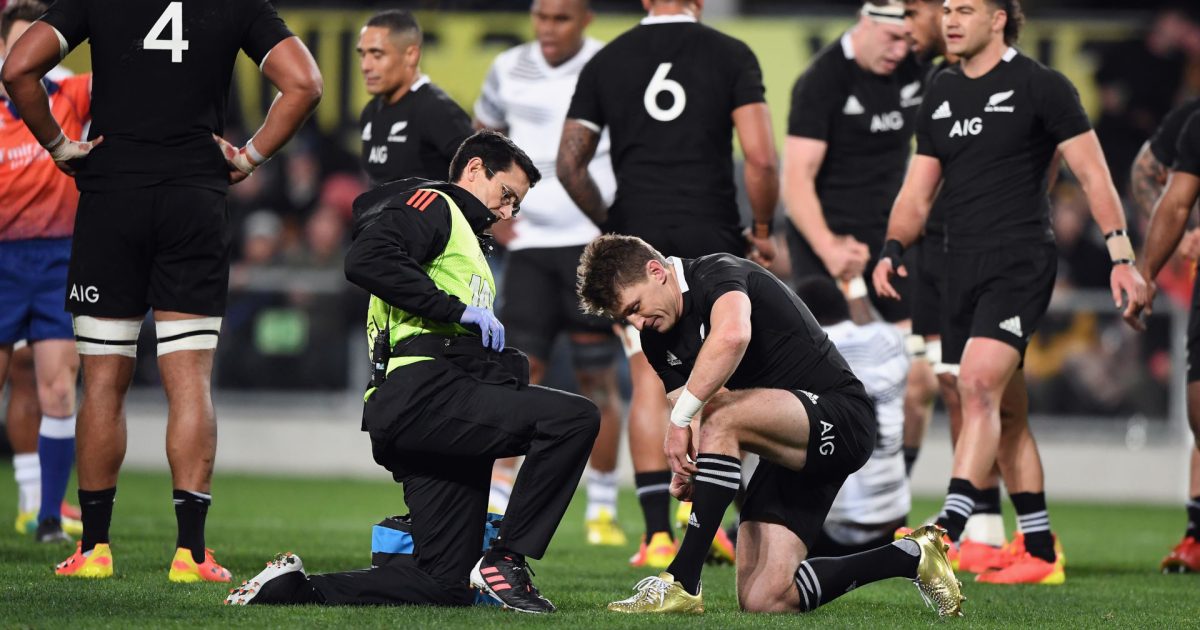World Rugby's new concussion rules means longer sideline stints for players

Players will face an increased minimum stand-down period of 12 days in a significant concussion protocol change announced by World Rugby.
Under new criteria, which is implemented in the global elite game from July 1, the vast majority of players diagnosed with concussion are set to miss their next match.
It follows the latest review of scientific evidence and rugby-specific research by World Rugby’s 17-strong independent concussion working group.
Currently, a player who fails a head injury assessment could conceivably feature again the following weekend, provided they follow and pass return-to-play protocols.
“The evolved approach will see players with a history of concussion or who are removed from a match with obvious concussion symptoms, sit out from play for a minimum of 12 days, likely missing their next competitive match,” World Rugby said.
“No player will return earlier than the seventh day after injury, and any player’s return will need to be approved by an independent concussion consultant.”
The procedure will be in place for overseas Tests next month that feature teams like England, Wales, Scotland and Ireland.
Protocols that define a player with a history of concussion include a concussion diagnosis in the previous three months, three concussions diagnosed in the previous 12 months, a player who has been diagnosed with five concussions in their career, and a player who has taken longer than 21 days to recover from a previous concussion.
World Rugby’s chief medical officer Eanna Falvey added: “It is going to be a new mindset for coaches and players.
“Our approach means it is now overwhelmingly likely a player diagnosed with a concussion won’t play in their team’s next match.
“World Rugby firmly believes that scientific evidence supports our protocols, but we are continually monitoring and testing them to ensure that they are fit for the modern game.
“We recognise that there are differences in concussion symptoms and concussion history, and this process enables us to further protect elite players by individualising their rehabilitation.
“It also keeps in place all the benefits of the previous protocols, which have been so successful in beginning to tackle under-reporting of symptoms which evidence shows that, while improving, remains an issue.”
Lobby group Progressive Rugby has campaigned for World Rugby to extend the return to play period since February last year.
And a number of former players are part of a legal case against World Rugby, the Rugby Football Union and Welsh Rugby Union over an alleged failure to protect them from concussion risks.
A Progressive Rugby spokesperson said: “While long overdue and not the perfect solution, this is a positive step for elite player welfare and will prevent most elite players from being exposed to extreme and unnecessary risk.
“It is also welcome acknowledgement for our members, who have long held grave concerns around this flawed protocol and lobbied tirelessly for it to be extended.
“However, while undoubtably a victory for player welfare, the journey is not complete and Progressive Rugby will continue working to ensure that the great game of rugby can be enjoyed by future generations.”
World Rugby chief executive Alan Gilpin added: “There are always going to be head impacts and there are always going to be concussions in rugby, so we are never going to eradicate that with the nature of the sport we have.
“But we want people comfortable that we have got a game that is safe to play at all levels and the sport is doing its best to protect and look after players’ safety and welfare.
“We are making progress, there are lots of areas where we have advanced. You can never do too much in this area.
“The key for us is to keep advancing with the science, and keep advancing as quickly as possible.”





































































